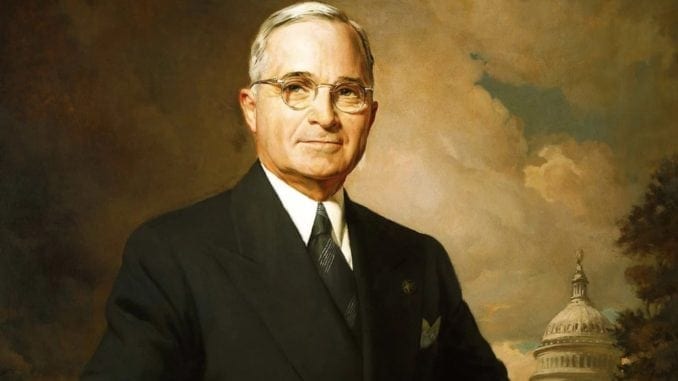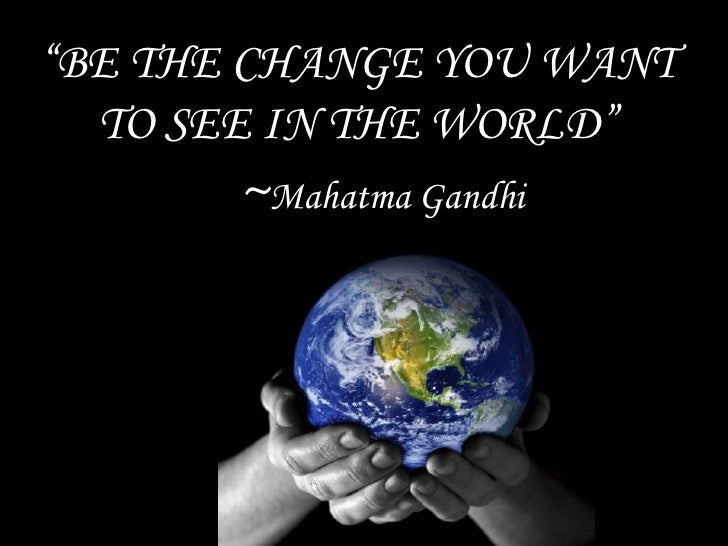A Noble Calling
"212 degrees of Fidelity, Today and Beyond"
What is the noblest calling one can receive?
As I have reflected on those in our communities who give of themselves daily I have pondered the question, what is the noblest calling one can receive? Perhaps it is the calling to be a teacher, serve in the military, public service as a school board member, fireman, policeman, or perhaps our first responders. Let us never forget the 911 responders! And let us not forget the calling to being a spouse, parent, or President of the United States.
I have always admired President Truman, particularly the way he handled adversity. During his first weeks as Vice President, Truman scarcely saw President Roosevelt and received no briefing on the development of the atomic bomb or the unfolding difficulties with The Soviet Union. The winds of change would swiftly cause these and a host of other wartime tribulations to become Truman's duty to solve when President Franklin Delano Roosevelt died in office. On April 12, 1945, Harry S. Truman became our 33rd President of the United States of America. Shortly after taking the oath of office for President, Truman said to reporters, "Boys, if you ever pray, pray for me now. I don't know if you fellas ever had a load of hay fall on you, but when they told me what happened yesterday, I felt like the moon, the stars, and all the planets had fallen on me."Brother Truman’s noble calling began in 1884 when Harry S. Truman was born in Lamar, Missouri. Truman did not have a middle name. In southern states, including Missouri, parents typically used initials rather than a middle name. Truman said the initiative was a compromise between the names of his grandfathers, Anderson Shippe Truman and Solomon Young. He grew up in Independence, and for 12 years prospered as a Missouri farmer through hard work and dedication. Truman would enter The Great War as a captain in the Field Artillery, and be deployed to France. Over four years the Great War would leave in its wake a toll of death, carnage, and destruction such as the world had never seen. World War I would forever shape the 20th century and leave its mark upon Truman and those who served home and abroad. Returning from The Great War, he married Elizabeth Virginia Wallace and opened a haberdashery (a men’s clothing store) in Kansas City. Active in the Democratic Party, in 1922 Truman was elected a judge of the Jackson County Court. Eventually, in 1934 Truman would hear the calling to become a Senator. During World War II he headed the Senate war investigating committee, who was task with checking into waste and corruption. It has been estimated Truman saved our government an estimated cost of 15 billion dollars.

I have always admired President Truman, particularly the way he handled adversity. During his first weeks as Vice President, Truman scarcely saw President Roosevelt and received no briefing on the development of the atomic bomb or the unfolding difficulties with The Soviet Union. The winds of change would swiftly cause these and a host of other wartime tribulations to become Truman's duty to solve when President Franklin Delano Roosevelt died in office. On April 12, 1945, Harry S. Truman became our 33rd President of the United States of America. Shortly after taking the oath of office for President, Truman said to reporters, "Boys, if you ever pray, pray for me now. I don't know if you fellas ever had a load of hay fall on you, but when they told me what happened yesterday, I felt like the moon, the stars, and all the planets had fallen on me."Brother Truman’s noble calling began in 1884 when Harry S. Truman was born in Lamar, Missouri. Truman did not have a middle name. In southern states, including Missouri, parents typically used initials rather than a middle name. Truman said the initiative was a compromise between the names of his grandfathers, Anderson Shippe Truman and Solomon Young. He grew up in Independence, and for 12 years prospered as a Missouri farmer through hard work and dedication. Truman would enter The Great War as a captain in the Field Artillery, and be deployed to France. Over four years the Great War would leave in its wake a toll of death, carnage, and destruction such as the world had never seen. World War I would forever shape the 20th century and leave its mark upon Truman and those who served home and abroad. Returning from The Great War, he married Elizabeth Virginia Wallace and opened a haberdashery (a men’s clothing store) in Kansas City. Active in the Democratic Party, in 1922 Truman was elected a judge of the Jackson County Court. Eventually, in 1934 Truman would hear the calling to become a Senator. During World War II he headed the Senate war investigating committee, who was task with checking into waste and corruption. It has been estimated Truman saved our government an estimated cost of 15 billion dollars.

President Truman made some of the most decisive decisions in history. Soon after V-E Day, the war against Japan had reached its final stage. Allied Forces issued an urgent plea for Japan to surrender, which was promptly rejected by the Empire of Japan. President Truman, after consultations with his advisers, ordered atomic bombs dropped on cities devoted to Japan’s war effort. The two cities selected were Hiroshima and Nagasaki. Japanese surrender quickly followed. In June 1945 President Truman witnessed the signing of the charter of the United Nations. Thus far, President Truman had followed his predecessor's policies, but he soon developed his own. He presented to Congress a 21-point program, proposing the expansion of Social Security, a full-employment program, a permanent Fair Employment Practices Act, and public housing and slum clearance. Truman wrote this program, "symbolizes for me my assumption of the office of President in my own right." It became known as the Fair Deal.
In 1947 President Truman would face re-election and he would have to campaign for the office of President. In foreign affairs, Truman’s life experiences provided his most effective leadership for the American people. President Truman’s second term would be marked with many social and foreign affair challenges. In 1952 President Truman would decide not to accept the nomination of his party for President. Weary and worn from the conflicts of politics and burdens he had faced President Truman retired to Independence; and at age 88, he died December 26, 1972, “after a stubborn fight for life”. President Truman’s life or what I call his body of work was committed to do “that which is right”! His obituary read “He left a major mark as a world leader."
Regardless of your station in life, are you committed to do that which is right? Often this will be a willingness to answer a call and accept a position of service. We each must be willing to churn or till new ground and break free from our comfort zone. Breakthroughs require commitment, engagement, and imagination. Leaders must embrace their calling like President Truman and commit themselves to have their body of work stand for that which is right! When faced with adversity look for new ideas, insights, and ways to solve the problems we are facing. I challenge each of you to commit yourselves to make your “body of work” stand for that which is right! Our communities, state, nation, and the world are facing many challenges and difficulties. Our beloved fraternity has within its power to make a difference. This will only occur when the craft challenges itself to rediscover, the wonder, and curiosity of their youth. Are you willing to go beyond your self-imposed boundaries and help those in need?
One of the most memorable poems ever written is “In Flanders Fields”. Several years ago I visited the World War I Museum in Kansas City. As you enter the museum you walk over a glass bridge and beneath it laid a field of poppies. Have you ever wondered why McCrae used poppies in his poem? Wild poppies flower in abundance when other plants in their direct vicinity are dead. The poppies seeds can lie on the ground dormant for years and years, patiently waiting until there are no more competing flowers or shrubs in the vicinity. Additionally, when someone firmly roots up tor tills the ground, these seeds will sprout. “Flanders Fields” was literally born of fire and blood during the hottest phase of the second battle of Ypres. There was enough rooted and tilled up soil on the battlefield of the Western Front for the poppies to flourish. Indeed trench warfare had left its toll upon Europe and literally churned up the soil. Therefore in May of 1915, McCrae sat down for 5 minutes rest and in anguish, he wrote his poem. Wild poppies burst forth from the ditches and graves on the battlefield; around him, blood-red poppies blossomed like no one had ever seen before.As Grand Master, I ask you to till new ground. Cultivate new Ideas. Reach beyond your comfort zone. Take time for internal reflection, and evaluate your body of work. Remember breakthroughs require commitment, engagement, and imagination.

In Flanders Fields

In Flanders fields, the poppies blow
Between the crosses, row on row,
That mark our place; and in the sky
The larks, still bravely singing, fly
Scarce heard amid the guns below.
We are the Dead. Short days ago
We lived, felt dawn, saw sunset glow,
Loved, and were loved, and now we lie
In Flanders fields.
Take up our quarrel with the foe:
To you from failing hands we throw
The torch; be yours to hold it high.
If ye break faith with us who die
We shall not sleep, though poppies grow
In Flanders fields.

Let the poppies remind you of the sacrifices our countrymen have made for our Great Nation! The time has come for this generation to have their body of work stand for that which is right! Earlier I asked you, what is the noblest calling one can receive? I believe that the noblest calling you can receive it is to realize and achieve your potential!

Our Father in Heaven is still watching, yes hos divine eye of providence still is on his throne watching over our Great Nation. Glory be to GOD on High!
Your friend and brother from Inman
Jay Adam
Jay Adam



No comments:
Post a Comment